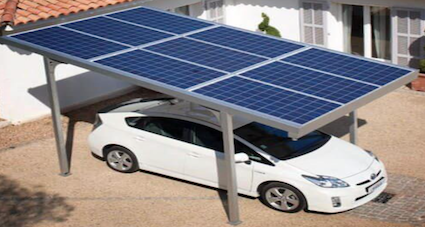Shuffling through old papers, I suddenly came across a battery scooter that my company had bought way back in 2007, in Pune. Called “ACE”, it was a simple machine, fitted with a very removable lead acid battery which was carted up to the office every night for charging and fitted back next time it was needed.
Since we already had a huge set of batteries for back-up power, and the requisite technical personnel to look after things, charging was not an issue. Used mostly for short-distance local work, the big benefit it gave the company was no more irritating slips of paper for fuel. In addition, since it did not need a registration certificate, there were no more challans either.
The subordinate staff hated it. No more showing off company wheels to friends and family. No more part swapping. Most of all, it simply did not need any servicing and lubrication, a drop of oil every few months was more than enough. It could carry two people, even uphill, though not very fast.
And that, very briefly, is one of the biggest challenges facing the adoption of EVs across segments of India where a fiddle with the fuel bills is part of the compensation and take-home package – the modern Electric Vehicle simply leaves far too many footprints for employees and provides employers with a level of transparency never known before.
Amongst the entrepreneurial class, where fuel bill savings add to the bottom line, the EVs across the range of small 2-wheelers, battery rickshaws and larger vehicles, are a hit. Gig economy, self-employed and now even truckers on specific routes where charging facilities have sprung up. The joy of not being hauled up for a PUC certificate checking is just one part of things.
So where are we in India headed for with Electrical Vehicles? To start with, just check out what the home delivery youngsters are riding lately, and not just in large cities. There are enough reports about how EV scooters have changed the mobility of the small to medium farmer. Think of people who did not have a petrol pump nearby, and now suddenly plug into the power out of a solar panel erected in their fields, which in turn helps them to get person and produce to the market at almost no cost.
So why is there some sort of angst audible now and then? Is it only because one particular brand abroad is not getting the tax breaks asked for?
As often is the case, the loudest sounds emerge from the private automobile category, and the dealers who suddenly find people of another category looking for an alternate to an internal combustion powered engine. There is also the Direct-to-Customer B2C sales model, wherein the intermediary Principal aka dealer is not any more the via media as is the case in a B2B2C model.
On the other hand, the EV 2-wheeler and EV 3-wheeler market has become almost like a commodity, with multiple small manufacturers entering the business – often on a local basis. Whether these are imported kits or domestic products, one fact remains constant – the lower end EVs are as use-and-throw as, say, low cost ball-pens.
Question that arise, then, are –
Can old cars and trucks be converted to EVs? Certainly, they can – and they become cost effective especially when carriage of assembled EV cars and trucks is causing problems on ships simply because the risks of fire and worse are already being felt. The constant vibration and movement as well as the closely packed vehicles being transported create conditions which seafarers have never seen before.
Is charging infrastructure on public roads really all that important? Yes and No. Yes, and oil companies are moving fast to fill up that void. No, because a large number of users don’t do huge distances long range every day. For those who do, like city based taxi operators, fast chargers are springing up everywhere.
Fossil fuels by any name are in one direction only as far as prices are concerned. The sun, on the other hand, gives enough power for charge and free. Where is the question of whether EVs will succeed or not?
(Veeresh Malik was a seafarer. And a lot more besides. A decade in facial biometrics, which took him into the world of finance, gaming, preventive defence and money laundering before the subliminal mind management technology blew his brains out. His romance with the media endures since 1994, duly responded by Outlook, among others.)


